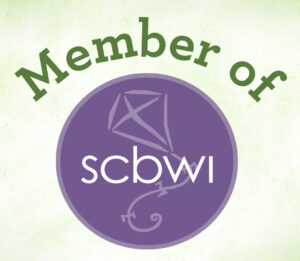Years ago, an Emergent Christian radio host teased me about my Reformed-ness on his radio show. The conversation left both of us confused. Him, I’m sure by my claiming Reformed theology took the same holistic approach I saw in the Emerging Church (especially in areas of erasing that line between sacred and secular. We got rid of it long ago…). Me, by how this smart man seemed to know nothing of Reformed theology.
The confusion would continue as I’d read critiques (or worse) on Reform-ed-ness across the internet and wonder who on earth they were talking about. Certainly it couldn’t be the Reformed-folks at my Christian Reformed Church or who’d taught and attended my college. Apparently not, since plenty of these same folks who criticized Reformed preachers and writers would show up at the Calvin College Festival of Faith and Writing and celebrate the greatness of the school, the inclusiveness of the festival, the rightness of the world. And I’d think, Duh. This is how Reformed works!
What I didn’t know then, but do know now is that the radio host and the internet were speaking of “different” kinds of Reformed. A kind I’d come to resent, a kind that would cause me–and others–to claim, “I’m not one of those.”
And I did this right up until last week–when I posted the wonderful (wish-I’d-have-written) “I’m Not Kind of Reformed” and when I nearly stood up and cheered upon reading “So What’s Wrong with Neo-Calvinism” by Bob Robinson (as it appeared at Scot McKnight’s Jesus Creed blog).
Robinson claims that instead of calling themselves “Reformed” or “Neo-Reformed” or “Neo-Calvinist,” this young, restless and reformed set who seem to put God’s rules above his revelations and God’s wrath above his grace should claim “Neo-Puritan” as a more appropriate name. And I concur. I like it. Neo-Puritan tells us that they indeed are Calvinist in nature, but differentiates “them” from the Reformed denominations who seem to view the world and God’s work in it, quite differently than the other Reformed set.
However, what I really liked about Neo-Puritan wasn’t just that it was more accurate. I liked it because it would mean I wouldn’t have to keep saying, “I’m not one of them.”
While my brain slurped up that delicious thought, my heart and soul gagged on it. I think the Holy Spirit had something to do with this. After all, that “I’m not one” of them is a lie. A horrible denial of my identity. Of my family.
Because of course, as long as anyone claims Jesus as Lord, has accepted his gift of grace, I am one of them. No matter how or where they worship–be it in a church, a beach, or a prison–no matter what sins they commit or cover up, if them claim Jesus, I claim them. I am one of them. In Christ.
No matter where they (or you) stand on women preachers, on gay marriage, on gun control, on who can take or administer the sacraments, on what even are the sacraments, on divorce, on drums in church or organ, on bikinis, on dancing or drinking or drug-taking, on confession, on prayer books, on premarital sex, on speaking in tongues, on corporal punishment, on public vs. home vs. Christian school, on whether James was really Jesus’ brother or not, on abortion, on birth control, on infant baptism, on predestination, on the rapture, on confession, or on any of the 100 zillion issues of doctrine or theology or “preference” we disagree on, I am one of them. In Christ.
We don’t need to be unified in all things or even try to agree on all things (the Bible would be a lot clearer on many issues if God wanted it this way). And I’m grateful for denominational and theological differences among believers. I love learning and challenging and being challenged. And I’m grateful that God has allowed his church to grow and reach others in such diverse ways with such diverse views.
But I can’t forget: we are brothers and sisters in Christ. No matter our differences, we are family. Galations 3 makes this clear.
As my actual (by blood and marriage) family will tell you, this means I will not hesitate to push back. I might even roll my eyes or raise my voice. I may walk off in a huff and write angry emails (or blog posts). But if you love Jesus, you are my family and–this may terrify some of you–but I am yours. All of us bought and freed by the same blood, all of us united for eternity (yikes, right? Is it bad that I hope we get to challenge each other perfectly in heaven?) by the same grace, all of us loved and welcomed and forgiven again and again (and again and again) by the same great God.
I am one of them, those, that kind. Thank God.










Thank you for this! And I do agree! Us vs. them is safer because it distances us and gives us autonomy, but deep down we are all one body!
Oh, April! I should’ve made that clearer. This wasn’t a critique of YOU or your piece (which I adored and posted), but of my own heart. : ) I’m so grateful you wrote what you did–and still like Bob Robinson’s idea that *they* should call themselves something else. Ha!
You nailed this. I hope it goes viral.
Amen! Amen! Thank you.
I like what you’ve expressed. I admit to being nearly completely ignorant on most of this “debate.” I see little else but “challenges,” as you refer to them, within the body of Christ. Yet when the pope speaks of unification and not discord, I hear cries of antichrist. (In this case, I do hope this is a radical fringe element speaking.) Either way, I find it all terribly disheartening. It seems that people are either frighteningly lukewarm (I am surrounded by them) or they are savagely in disagreement. I hope you include Catholics in your desire for one body in Christ. I absolutely adore so many Protestant members of the faith whom I follow online. Thank you, Caryn, for being brave enough to state what many will probably refuse to hear.
Hey Kacee: Thanks for the comment. I do indeed include Catholics! My language about the sacraments are and debates on if James really is Jesus’ brother was a nod to my Catholic family members. And by family I mean in the “in Christ” kind as well as the actual kind. : )